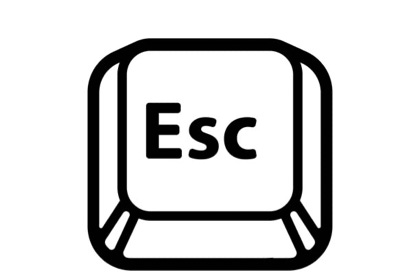Jumping into the known
I had a couple of calls with people this week preparing to leave their corporate jobs and, as often the case, I noticed some patterns, this time around “The Jump”.
Note the singularity.
And the consequent pressure. On knowing where to jump to. And on being right, when so much is unknown.
As part of my research for the book, I’ve spoken to well over a hundred people who’ve left their corporate jobs to do something different. And I don’t believe a single one had a single jump.
Not a single person landed precisely where they expected to land.
That’s supposed to be reassuring, but maybe it isn’t. Maybe it actually creates more anxiety in the corporate person thinking of moving and believing everything can and should be planned out. After all, isn’t this how we’re taught: set goal, build plan, deliver plan, reach goal?
The idea of doing something truly life-changing with a whole lot of uncertainty in the outcomes can be quite terrifying. Enough to make you stay put.
And me all kum bah yah saying “it’s about the journey, not about the destination”, and my latest podcast guest Steve Cook being evangelical about the benefits of leaving, may not be convincing enough.
I’ve never met anyone yet who regretted leaving their corporate job (eventually). We tend to look forward, post-rationalising the bad times or wrong directions as learning - or if they’re really bad we simply delete them altogether from our narrative.
So in many ways it doesn’t really matter what you do first, because it’s probably not going to be what you end up doing eventually. And that’s fine – at least when you look back.
I left my corporate job to build a tech product business aimed at startups. It didn’t work, so I tried other things, and through a new network and new capabilities I’d built, I got into some pro bono mentoring for a few startup accelerators, that led to some paid mentoring, that led to the job I’m doing now for Startupbootcamp. Stepping stones.
Of course I wouldn’t be so gung ho talking to my sixteen year old “Leave school, it doesn’t matter what you do first, you'll be fine.” Or maybe not even to a twentysomething sick of their job.
But I do say it to you, people with a decade or more of experience; people carrying distinctive, credible skills, knowledge and proven track record that will be valuable to someone else.
You need to trust yourself. Trust that what you have done in your corporate career can translate into another way of making money, and perhaps can give you more purpose, more freedom, more enjoyment, more time.
The reality is although it may feel like one big jump it will actually be a series of smaller jumps. And it will be less like tomb-stoning and more like crossing stepping stones: some will require a bit more of a stretch, some you’ll barely notice a void. And some you’ll just have to trust that you’ll land without slipping and getting wet.
But no-one needs to jump into the unknown these days. There are people to talk to, podcasts to listen to (mine with Steve is now on Spotify and YouTube) and there are courses to help you build your Escape Plan. But also you can test things out like never before – put up a landing page with an idea for a service you can offer, reach out to your ideal customer on LinkedIn and ask for 20 minutes to test some hypotheses, set up a side-hustle, offer some free coaching or consultancy in return for a testimonial…you might find paying customers for what you choose to do before you exit, de-risking a jump…to a mere step.
I talked to my friend Sarra this week. She’s left her corporate job in financial services to go back to university. She had the best analogy for the jump – Snakes and Ladders. She said “It can feel like just as you’re approaching 100, you land on a Snake and immediately slip back to number 2 on the board”.
What I’m trying to do with Corporate Escapology is give you the tools to help you prepare so that the fall isn’t so big. It may be more disruptive to your career path than “Go back three spaces”. But it won’t mean going all the way back to number 2 on the board - or even to number 72 if you prepare.
And the wonderful thing is the end of the game may no longer be 100 – the ceiling is removed - it’s set by you, no plateau, no enforced ending based on age, no one else determining your fate.
One of the things I often ask my clients to do is visualise a cliff on one side (where they are today) and another one (where they want to get to – say in three years). Instead of imagining the single jump (which feels too scary and is actually impossible), imagine a series of steps that appear, so you can take smaller jumps across to the other side.
I don’t expect the steps to actually join to the other side because it’s three years off. Just plan the first three. And for each one, write down underneath what assets you’ll draw on to give you confidence that the step will support you.
So the lessons are 1) don’t think one big jump, but rather a series of steps and 2) test before you fully commit.
In short, prepare – and you’ll increase your chances of landing safely.
++++++++++++++++++++++++++++++++++++++++++++++++++++++++++++++++++++++++++++
If you know someone who needs support in preparing to leave their corporate job, please do share this blog - and the Escape Plan course. And definitely the podcast on Spotify and YouTube.





